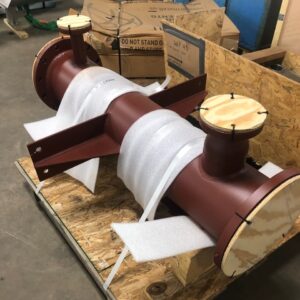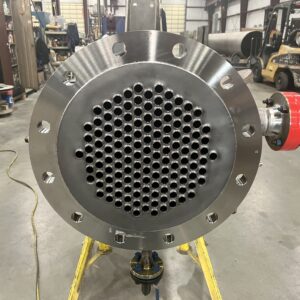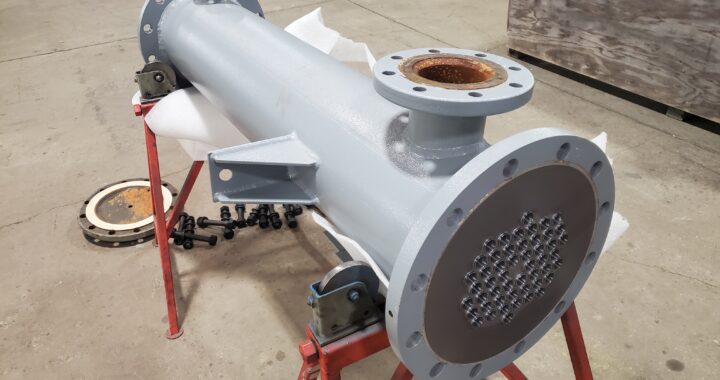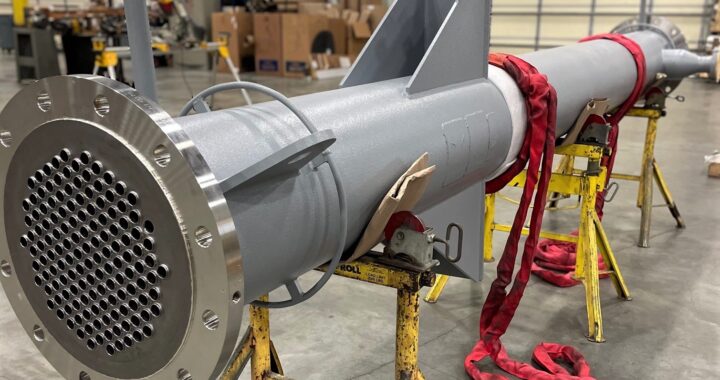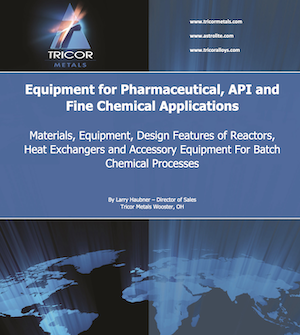For more than two decades Tantalum has proven itself to be a superior material when used in hydrochloric and sulfuric acid steel pickling applications.
Tantalum, being a refractory metal, gets its corrosion resistance from a continuously regenerating oxide layer that occurs during the use in chemical service. The oxide layer is both corrosion resistant and erosion resistant proving itself a superior choice for corrosion resistance and reliability in hydrochloric acid steel pickling applications. Tantalum is totally up inert in the concentrations and temperatures of hydrochloric acid used in steel pickling.
Tantalum heat exchangers utilize it fully welded metal design that has proven to meet the mechanical challenges associated with steel mill operations. Tantalum heat exchangers are smaller than other heat exchangers used in this service and are easily accessible for inspection and cleaning.
The erosion resistance of the tantalum tubes allows for acid velocities through the heat exchanger that improves heat transfer as well as reduce fouling associated with the reprocessing of pickled steel.
Benefits of tantalum heat exchangers in steel pickling applications are:
- Tantalum heat exchangers can be designed to utilize up to 150 psig steam with standard gauge tantalum tubing. The use of higher-pressure steam reduces the heat transfer surface area required at a given heat load, reducing the cost of tantalum equipment over other materials.
- Tantalum heat exchangers are a fully welded metal that are dye penetrant tested, helium leak tested and then hydrostatically tested to ensure a 100% leak free heat exchanger at time installation. Tantalum heat exchangers are considered more rugged than heat exchangers of other materials used in this application I have been known to be damaged in handling, installation, and transportation.
- Tantalum utilizes standard off the shelf, gaskets and hardware that are available from your parts inventory or from local pipe and valve distributors.
- Tantalum heat exchangers can be designed to fit into the mounting and acid piping footprint of carbon block or other heat exchangers.
